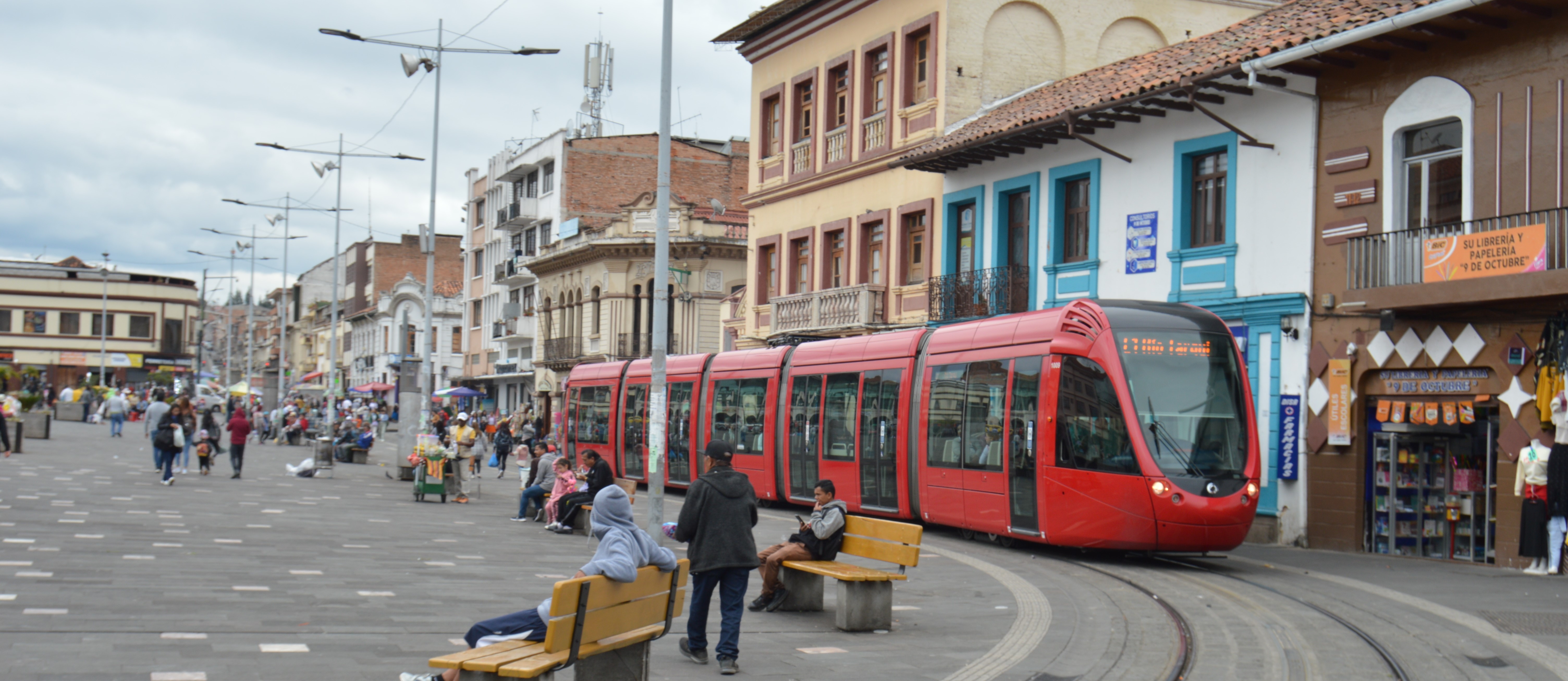Urban sustainability
Framing sustainability, sustaining lifeworlds:
An ethnography of urban intervention in Cuenca, Ecuador
The technological developments of our cities today are increasingly framed in terms of sustainability. However, the notion of sustainability and the ways it is put to work in concrete contexts often give rise to controversy. Sam Rumé focuses on such controversies and their wide-ranging empirical and theoretical implications in his research on "sustainable mobility" in Cuenca, Ecuador. He has received a Government of Ireland Postdoctoral Fellowship to write a book on this research.
Book project
In Cuenca, a city of half a million inhabitants in the Ecuadorian Andes, policy makers have centred their agenda around the notion of sustainability. A key area in which sustainability is sought is urban mobility. A series of sustainable mobility projects have therefore been implemented, ranging from cycling infrastructure and pedestrianisation to the reorganisation of public transport. The flagship project of this new agenda has been the construction of a tramline. However, the construction and operationalisation of this new means of transport did not develop according to plan, causing widespread conflict with inhabitants and raising questions about how sustainable it really was. Moreover, different inhabitants understood the project in diverging ways, framing the tram in terms of modernisation, culture, heritage, commerce and tourism, for instance, as well as political spectacle, incompetency and corruption, instead of the official sustainability narrative.
These challenges to sustainability are not unique to Cuenca, however. Both the sustainability projects and the kinds of problems they face resonate with similar realities across the world. Sustainability, as a guiding principle for contemporary city making, has been a controversial concept since its inception. This is reflected in the scholarly literature on urban sustainability, which can be divided broadly into two tendencies: an optimistic take embracing the numerous sustainability initiatives developed in contemporary cities (often from the perspective of policy makers and planners) and a body of critical literature rejecting the very conceptualisation of sustainability as flawed at best, and complicit with capitalist modernity at worst. What this book proposes is an attempt to overcome the dichotomic pitfalls, inherent in this literature, of considering sustainability claims as either good or bad, genuine or hypocritical, effective or useless, part of a modern ontology or radically nonmodern. Instead, any sustainability claim, be it mainstream or radical, localised or holistic, may be considered a necessarily partial framing of the world. Accordingly, any sustainability claim might be examined according to the way it organises reality, how it relates and prioritises different entities or phenomena, what it takes into account and what it leaves out, what it attempts to sustain and how. In this sense, sustainability can never be absolute, all-encompassing, but only relative to a specific reality which contradicts other realities that seek to sustain themselves. The aim of the book is to explore ethnographically how sustainability is framed in Cuenca, what realities it produces and what realities it thereby contradicts.



